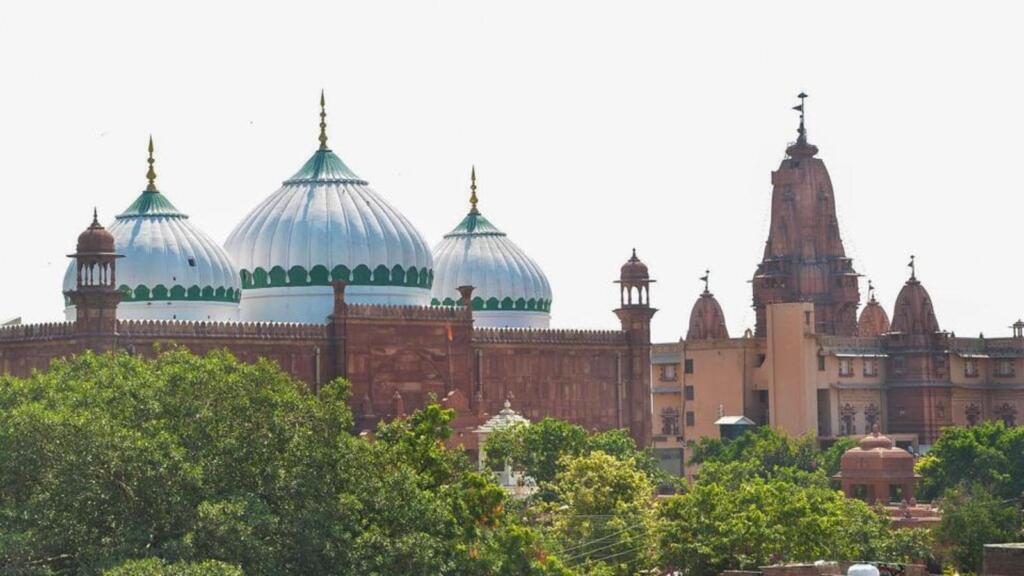The history of India does not start from the date of 15 august 1947. Injustice anywhere-anytime is a threat to justice everywhere-every time. Wrongdoings by the invaders must be corrected in modern times, to assimilate the idea of justice in Hindu society. The existence of any structure by the conversion of Hindu temples into Islamic architecture is not only a strike upon all the beautiful and artful creations of the ancestors but also a constant attempt to keep alive the wounds of the Hindus who suffered during the attack. So, it becomes a moral as well as a legal obligation to not only the people but also to the modern Indian state to collectively rectify the historical injustices.
In the rolling effort to rectify this injustice, the Mathura Court has accepted the plea filed by Shri Krishna Janmabhoomi Trust and others seeking ownership of the land upon which the Shahi Idgah Masjid is built.
Earlier a suit was filed in September 2020 on behalf of the deity Bhagwan Shrikrishna Virajman seeking the transfer of 13.37 acres of land adjacent to the Shri Krishna temple complex in Mathura, which includes the Shahi Idgah Masjid. Though, the court had rejected the plea on the ground that the Plaintiffs being the devotees of Bhagwan Krishna have no right to file suit. But now, the court has accepted the revision petition filed under section 96 of the Civil Procedure Code.
Read Also: Gyanvapi Masjid Row: All lies exposed!
The Places of Worship Act – No locus standing
Moreover, the court rejected the argument of opposition parties that the suit is barred by the provisions of The Places of Worship (Special Provisions) Act 1991 and opined that “the provision of The Places of Worship (Special Provisions) Act 1991 are not applicable by virtue of section 4 (3)(b) of the Act”.
The court rejecting the argument of ‘the compromise’ held that “with regard to the entire property of Katra Keshav Deo, whether Shri Krishna Janma Bhoomi Seva Sangh had the power to enter into a compromise with Trust Shahi Idgah Masjid is a matter of evidence which can be determined only on the basis of the evidence adduced by both the parties during the trial” and by the virtue of section 4 (3)(b) of the act which effectively provides for the maintenance of status-quo of the structure, the plea is maintainable.
Read Also: After Gyanvapi Masjid, it’s time for the truth behind Shahi Idgah Masjid to come out
In furtherance to that, the court also rejected the argument of the opposite parties that the plea violates the provisions of Article 25. The court further added that “Freedom of conscience and free profession, practice and propagation of religion – subject to public order, morality and health and to the other provisions of this Part, all persons are equally entitled to freedom of conscience and the right to freely profess, practice and propagate religion”.
The court’s acceptance of the plea will pave the way for the recovery of the disputed structure. Already the survey of the ‘Gyanvapi Mandir’ has revealed that the existing mosque was built by the conversion of a Hindu temple. In furtherance, the court should also allow the survey of the ‘disputed Shahi Idgah’ by the constitution of a committee under the archaeological and judicial experts.
